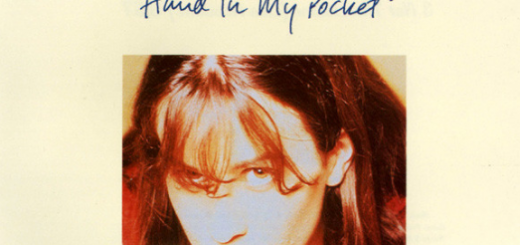Forgiven by Alanis Morissette Lyrics Meaning – Unraveling Catharsis and Confronting Dogmas
Lyrics
We make up for so much time a little too late
I never forgot it, confusing as it was
No fun with no guilt feelings
The sinners, the saviors, the lover-less priests
I’ll see you next Sunday
We all had our reasons to be there
We all had a thing or two to learn
We all needed something to cling to
So we did
I sang Alleluia in the choir
I confessed my darkest deeds to an envious man
My brothers they never went blind for what they did
But I may as well have
In the name of the Father, the skeptic and the Son
I had one more stupid question
We all had our reasons to be there
We all had a thing or two to learn
We all needed something to cling to
So we did
What I learned I rejected, but I believe again
I will suffer the consequence of this inquisition
If I jump in this fountain, will I be forgiven?
We all had our reasons to be there
We all had a thing or two to learn
We all needed something to cling to
So we did
We all had delusions in our head
We all had our minds made up for us
We had to believe in something
So we did
We all had our reasons to be there
We all had a thing to learn
We all needed something to cling to
So we did
So we did, ooh, I, I, I
So we did
Lead a discussion on the intricate lyrics of Alanis Morissette’s ‘Forgiven’, and you’ll encounter a mosaic of personal reckoning, spiritual confrontation, and the quest for absolution. This track, nestled in the heart of her jagged little pill that took the ’90s by storm, serves as a narrative conduit; it weaves the stark retrospective of a woman entangled with the dogmatic threads of her Catholic upbringing.
The allure of ‘Forgiven’ isn’t merely in its raw, confessional lyricism, but in the universality of its appeal. It articulates a journey through guilt, repression, and ultimately, liberation – a journey that resonates with anyone who has grappled with the shadows of their own indoctrinated beliefs. As we peel back the layers, there’s as much to learn about the enigma that is Morissette as there is about our reflection in her introspective mirror.
Confession Booth Revelations: The Lyric’s Core
At its heart, ‘Forgiven’ is a confessional anthem – a testament to the internal struggle between guilt imposed by religious doctrine and personal truth. Morissette, with her knack for poetic grit, drags listeners through an honest audit of her spiritual trials and tribulations. The confessional booth becomes a space not just for admittance of ‘darkest deeds’, but a spotlight on a system that imprisons in the guise of absolution.
This cathartic exposé doesn’t spare details, from the ‘envious man’ receiving her confession to her brothers spared the scrutiny she endures – an allusion to gender disparities, even in judgment. Alanis juxtaposes the role of ‘sinner’ and ‘savior’, ‘skeptic and Son’, to question the very fabric of her spiritual wardrobe. Each verse peels back another layer, revealing not just her story, but every story that has ever grappled with such dichotomies.
The Chorus Chasm: Clinging to Something, Anything
Morissette’s chorus doesn’t crescendo – it resonates with an echoing thud of truth. The repetitive lines ‘We all had our reasons to be there’, ‘We all had a thing or two to learn’, ‘We all needed something to cling to’ hammer in the shared humanity of clutching at belief systems. It’s an unspoken alliance of doubt and faith, where the sanctity of belief is both questioned and clung to like a life raft.
This chasm of irony is the battleground of Morissette’s youth. Alanis gives voice to the conflicted souls, those doubting yet desperately wanting to believe, encapsulating the bittersweet comfort of religious ritual, despite its constrictive grip. It’s an acknowledgment of the communal crutch born out of a longing for stability and existential answers.
Escaping Eden: The Hidden Meaning in Rejection and Redemption
It would be short-sighted to write ‘Forgiven’ off as mere religious critique. Beneath the icy waters of Morissette’s lyricism, there lies a submerged theme – the fierce reclaiming of self through the shedding of indoctrinated skin. When she croons about learning and rejecting, only to ‘believe again’, there’s a phoenix-rising narrative of escaping the Eden of illusions, and embracing a chosen, conscious belief.
Alanis proposes not a rejection of faith, but an indictment of blind adherence; forging a forged spirituality over one self-determined. The ‘inquisition’ she faces isn’t just external – it’s a psychological trial, a rite of passage to personal salvation. And in this inflection point, the song takes a dive into the deepest recesses of existential metamorphosis.
Stained-Glass Sentiments: A Dive into the Song’s Memorable Lines
‘In the name of the Father, the skeptic and the Son’ – a lyric etched in the consciousness of Morissette’s audience; a blend of liturgical homage and defiant disbelief that encapsulates the song’s spirit. This goes beyond wordplay; it’s an amalgamation of her past beliefs with the skeptic she’s become, defying the familiar Trinitarian formula to pen in her presence.
Each memorable line sews together the narrative quilt of ‘Forgiven’, from ‘Alleluia in the choir’ signifying community belonging, to challenging the equality of sin and repentance with, ‘My brothers they never went blind for what they did’. These lines aren’t quips; they’re seismic shifts in the narrative landscape, each one a step Morissette takes towards spiritual sovereignty.
Climax of Catharsis: ‘Will I be forgiven?’
The inquiry Morissette poses towards the end, ‘If I jump in this fountain, will I be forgiven?’, becomes the climax of her spiritual catharsis. The ‘fountain’ is symbolic – purifying yet indiscriminate – reflecting her yearning for true absolution, possibly from the shackles of guilt and the balm of uncritical acceptance.
‘Forgiven’ is not just a song; it’s an exorcism of the past’s dogma in exchange for authentic self-acceptance. Alanis asks for forgiveness not from the divine, but perhaps, from herself. As she dangles this question before us, it becomes clear that amidst the dogma and melody, this isn’t a quest for pardon from a deity, but an intimate plea for self-redemption.








